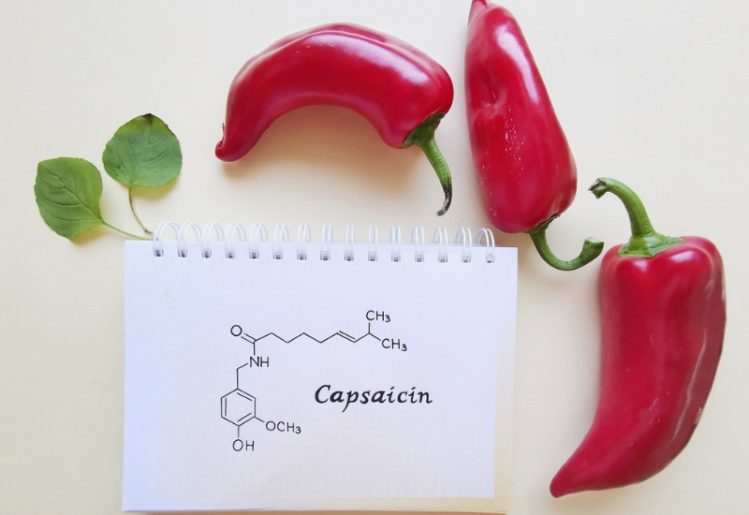Melatonin is a hormone best known for its role in preparing the brain for sleep. Due to its effectiveness in this respect, it’s the primary ingredient in many sleep supplements. Outside of the United States and Canada, melatonin-based formulas are only available with a doctor’s prescription. While some argue that using melatonin for sleep isn’t always effective, people suffering from insomnia find that it can help them sleep better in most cases. We already know that there are many positive effects of melatonin, but new research is still uncovering more benefits provided by this amazing hormone.
What is Melatonin?
 To understand melatonin and its effect on the body, it’s important to first understand how and why it’s produced. Our bodies rely on a biological clock to function, known as our circadian rhythm. Among the other bodily functions it regulates, the circadian rhythm helps the brain differentiate between wakefulness and sleep. This is a process that relies on the changes between light and dark. As the sun goes down and the sky gets darker, the brain recognizes that it’s soon nearing time for sleep and releases melatonin to promote drowsiness.
To understand melatonin and its effect on the body, it’s important to first understand how and why it’s produced. Our bodies rely on a biological clock to function, known as our circadian rhythm. Among the other bodily functions it regulates, the circadian rhythm helps the brain differentiate between wakefulness and sleep. This is a process that relies on the changes between light and dark. As the sun goes down and the sky gets darker, the brain recognizes that it’s soon nearing time for sleep and releases melatonin to promote drowsiness.
Unfortunately for those who work irregular shifts, melatonin production is inhibited during the day, which is why it’s harder to get to sleep in the mornings and afternoons. People who follow irregular sleep schedules experience insomnia and other sleep disorders more commonly because the production of melatonin has been interrupted. This is also why a sleep formula containing melatonin can be more effective for those who work these types of schedules. Their bodies need that extra boost of melatonin during the day, when their brains won’t naturally produce the hormone in sufficient quantities.
What are the Positive Effects of Melatonin?
There have been multiple studies on the effects that melatonin has on the body, leading to the discovery that it can do more than just help you get a good night’s sleep. One of the surprising effects of melatonin is that it can help alleviate the symptoms of jet lag. A study that started in 2010 and lasted for four years looked at the effects that melatonin had on 142 travelers. In that study, researchers found that subjects who were given melatonin supplements experienced less severe jet lag symptoms than travelers who were given a placebo. Those taking the supplement experienced more restful sleep, reduced instances of daytime tiredness and fewer digestion problems.
Melatonin was also found to help people suffering from delayed sleep-wake phase disorder, or DSWPD. This is a condition in which the individual can’t fall asleep until 2:00 a.m. or later and end up sleeping well into the afternoon. Including a 2016 study of 52 subjects, research has found that taking melatonin supplements at the right time in the evening helped people with DSWPD to fall asleep earlier. They also fell asleep faster, taking an average of 22 minutes to nod off.
A 2015 research project looked at 774 patients and found melatonin was also effective in reducing anxiety prior to surgery. Many people suffer severe bouts of anxiety just before undergoing a surgical procedure, but taking a melatonin supplement seemed to alleviate those emotions. While it wasn’t clear whether or not melatonin was effective in treating post-surgery anxiety, it was found to be just as effective as anti-anxiety medications in treating pre-surgery anxiety.
Research into the positive benefits of melatonin is ongoing. Current and future studies are looking into the hormone’s effect on cancer symptoms, high blood pressure, diabetes, neurodegenerative diseases and intestinal illnesses.
How Can You Get More Melatonin Naturally?
Take a Supplement
As the previously cited studies show, a melatonin supplement can help you maintain adequate levels of melatonin when you need it most. A high-quality melatonin supplement can be beneficial because a single dose contains a sufficient amount of melatonin to help you get the restful sleep you need. Additionally, certain time-controlled melatonin formulas ensure the melatonin will have the best possible effect on your sleep cycle.
Get More Daylight
Sunlight is beneficial in controlled exposure, because its rays encourage vitamin D production in the body. Additionally, exposing yourself to natural daylight will help regulate your circadian rhythm. The sun’s rays help promote the production of serotonin, which the brain needs to produce more melatonin. In this way, getting more sunlight in the mornings promotes more efficient melatonin production in the evenings.
Turn Off Your Electronic Devices
 Most people don’t realize the harm they’re doing when they use their smartphone or tablet just before bed. The blue light that these screens give off disrupts the circadian rhythm, preventing the brain from producing sufficient levels of melatonin. Doctors recommend shutting off all electronic devices at least one hour before your bedtime to give the brain enough time to adjust. This will ensure the hormone will be properly released as you near your bedtime.
Most people don’t realize the harm they’re doing when they use their smartphone or tablet just before bed. The blue light that these screens give off disrupts the circadian rhythm, preventing the brain from producing sufficient levels of melatonin. Doctors recommend shutting off all electronic devices at least one hour before your bedtime to give the brain enough time to adjust. This will ensure the hormone will be properly released as you near your bedtime.
Eat Melatonin-Rich Foods
There are certain foods that promote the production of melatonin, so you should consider adding these foods to your diet to ensure you’ll sleep better. Some melatonin-rich foods include asparagus, corn, cucumbers, olives, nuts and seeds. Barley and rolled oats are also helpful in promoting melatonin production.
Sleep on Your Back
This position is a popular yoga pose that’s commonly called the corpse pose, because it helps the body reach a deeper state of relaxation. As you lay on your back and breathe deeply, the brain will begin releasing a higher concentration of melatonin. This is why many people find it easier to fall asleep in this position.
 Past research has found that individuals born in November in the northern hemisphere of the planet have the
Past research has found that individuals born in November in the northern hemisphere of the planet have the  Vitamin D is thought to play a role in infant health and the correlation that an individual’s health as a baby has to early mortality. Specifically, a
Vitamin D is thought to play a role in infant health and the correlation that an individual’s health as a baby has to early mortality. Specifically, a  The new fish oil drug, called Vascepa, contains a potent omega-3 fatty acid called eicosapentaenoic acid (EPA). While this compound is naturally found in fish oil, the FDA advises that for maximum effectiveness it should only be prescribed to patients with exceptionally high triglyceride levels and that it should be used along with other treatments designed to lower the risk of a cardiovascular event. Additionally, it is cautioned that patients keep a close eye on their cholesterol levels while taking Vascepa.
The new fish oil drug, called Vascepa, contains a potent omega-3 fatty acid called eicosapentaenoic acid (EPA). While this compound is naturally found in fish oil, the FDA advises that for maximum effectiveness it should only be prescribed to patients with exceptionally high triglyceride levels and that it should be used along with other treatments designed to lower the risk of a cardiovascular event. Additionally, it is cautioned that patients keep a close eye on their cholesterol levels while taking Vascepa. There are a number of cognitive and emotional health benefits that can come from an increased intake of omega-3 fatty acids. A study involving children found that consuming more fish per week improved behavioral problems associated with ADHD. In a separate research project, it was found that memory recall was improved in young adults, although the researchers could not verify that the omega-3 exposure would help prevent cognitive decline in later years. Regular consumption of omega-3-rich foods may also reduce the risks of developing Alzheimer’s disease, lower the frequency of epileptic seizures, prevent age-related vision loss and may reduce the risk of psychosis.
There are a number of cognitive and emotional health benefits that can come from an increased intake of omega-3 fatty acids. A study involving children found that consuming more fish per week improved behavioral problems associated with ADHD. In a separate research project, it was found that memory recall was improved in young adults, although the researchers could not verify that the omega-3 exposure would help prevent cognitive decline in later years. Regular consumption of omega-3-rich foods may also reduce the risks of developing Alzheimer’s disease, lower the frequency of epileptic seizures, prevent age-related vision loss and may reduce the risk of psychosis. In conducting their research, the team studied surveys from subjects in the United States and China, ultimately noting that those who ate more chili peppers exhibited reduced early mortality rates. Taking their research a step further in a separate study, the team then observed the ways in which capsaicin affected lipids in the blood in an attempt to uncover exactly how the compound improved mortality.
In conducting their research, the team studied surveys from subjects in the United States and China, ultimately noting that those who ate more chili peppers exhibited reduced early mortality rates. Taking their research a step further in a separate study, the team then observed the ways in which capsaicin affected lipids in the blood in an attempt to uncover exactly how the compound improved mortality. Besides findgins that capsaicin reduces mortality risk, previous research has found that capsaicin is also beneficial in
Besides findgins that capsaicin reduces mortality risk, previous research has found that capsaicin is also beneficial in  Spending so much time at work does have an effect on the psyche and it’s a condition that has been the subject of research for several generations. As far back as the 1970s, Herbert Freudenberger used the word “burnout” to describe adults who experienced the specific type of depression
Spending so much time at work does have an effect on the psyche and it’s a condition that has been the subject of research for several generations. As far back as the 1970s, Herbert Freudenberger used the word “burnout” to describe adults who experienced the specific type of depression  Burnout pushes people to seek solitude, which can only aggravate depressive and anxious feelings. While it may take some effort, seeking out your friends and spending more time with them can help reduce the stressful work/life feelings you’re experiencing. In addition to finding joy in your friends’ companionship, you’ll also be forcing yourself to create a better balance in your life.
Burnout pushes people to seek solitude, which can only aggravate depressive and anxious feelings. While it may take some effort, seeking out your friends and spending more time with them can help reduce the stressful work/life feelings you’re experiencing. In addition to finding joy in your friends’ companionship, you’ll also be forcing yourself to create a better balance in your life. A recent study sought to uncover how capsaicin relieves pain, particularly since this compound has become a common ingredient in many natural pain relievers. Researchers at Rutgers New Jersey Medical School found that capsaicin causes the nerves in the body to send out signals that block pain receptors. Since this process also works to calm the nerves, study author Tibor Rohacs believes capsaicin can also be used as an effective analgesic. It was found that these calming and pain-relieving effects were highly effective and very long-lasting, suggesting that capsaicin supplements and medications may be especially powerful in terms of treating pain and other conditions.
A recent study sought to uncover how capsaicin relieves pain, particularly since this compound has become a common ingredient in many natural pain relievers. Researchers at Rutgers New Jersey Medical School found that capsaicin causes the nerves in the body to send out signals that block pain receptors. Since this process also works to calm the nerves, study author Tibor Rohacs believes capsaicin can also be used as an effective analgesic. It was found that these calming and pain-relieving effects were highly effective and very long-lasting, suggesting that capsaicin supplements and medications may be especially powerful in terms of treating pain and other conditions. Finally, a study on how capsaicin affects longevity found that people who regularly consumed chili peppers were likely to live up to 18 years longer. The University of Vermont study evaluated the effects of consuming chili peppers on 16,000 subjects. They found that the food
Finally, a study on how capsaicin affects longevity found that people who regularly consumed chili peppers were likely to live up to 18 years longer. The University of Vermont study evaluated the effects of consuming chili peppers on 16,000 subjects. They found that the food